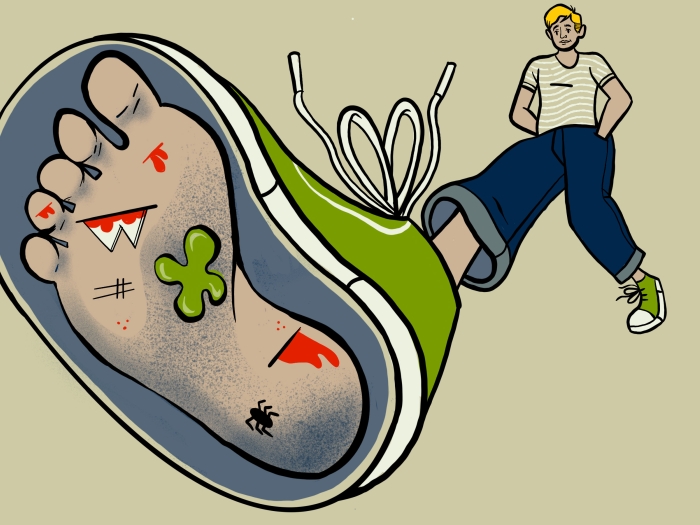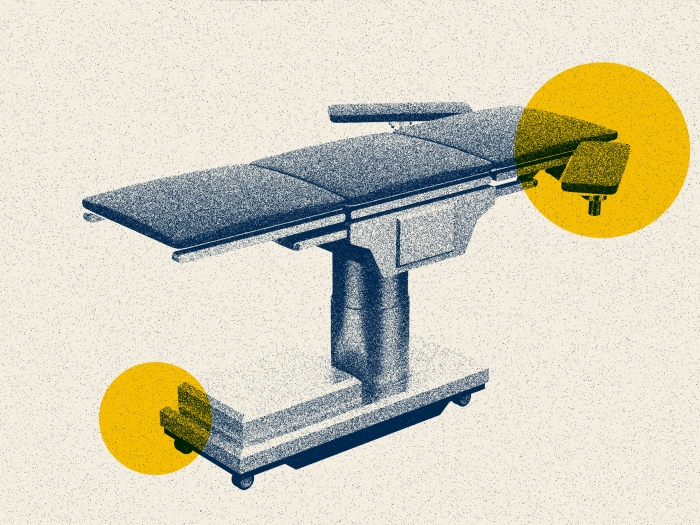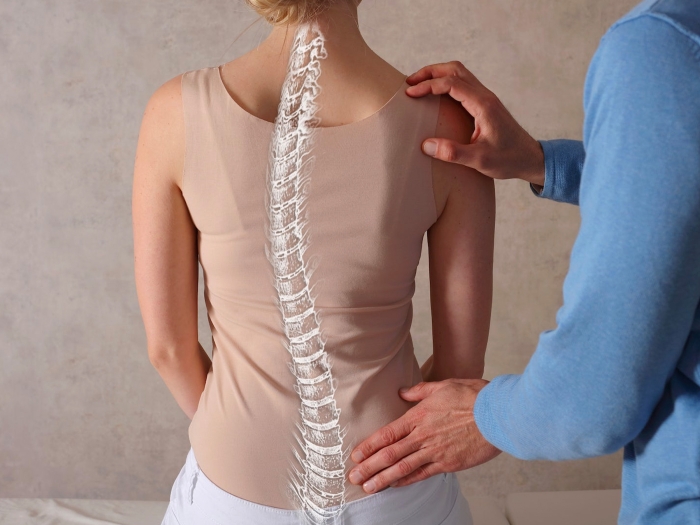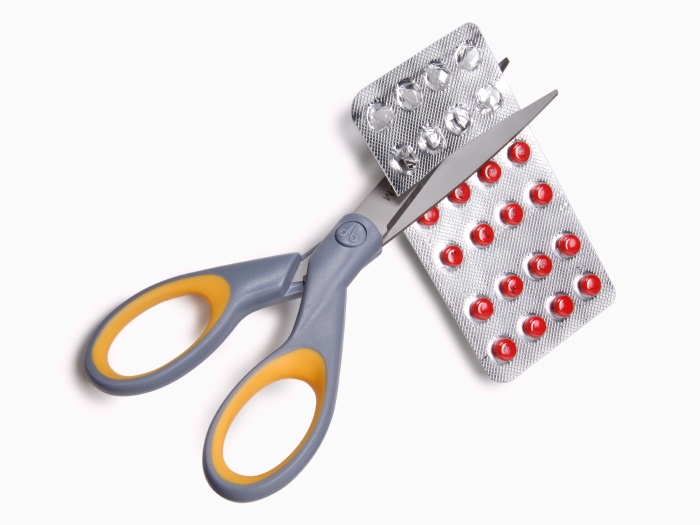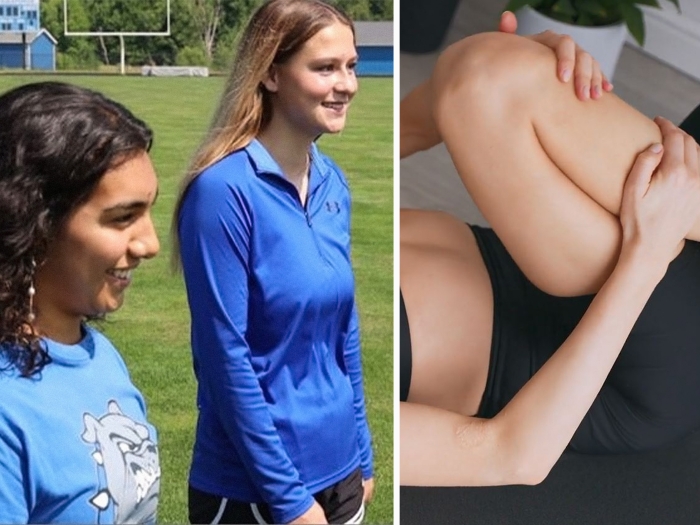If you’ve ever heard someone describe feeling like they were punched in the back of their legs, or hearing a popping sound from their heel or calf area, it’s very possible that they’re talking about an Achilles tendon injury. It’s a very common-activity related injury – but it can be a serious one.
In this episode, James Holmes, M.D. joins us to answer the most commonly searched questions about Achilles tendon injuries, including:
- What does the Achilles tendon do?
- What are some of the more common Achilles tendon injuries?
- How are Achilles tendon injuries treated and how long does it take to recover?
- What exercises are safe to do with an Achilles injury?
- Are there things you can do to prevent an injury to the Achilles tendon?
- Are some people more prone to this type of injury? Is there a genetic aspect?
- Who needs Achilles tendon surgery and what does that surgery involve?
- Is an Achilles tendon injury a career-ending injury for an elite athlete?
More resources
- Visit Dr. Homles' profile
- Learn more about foot and ankle care at U-M Health
- Learn about Achilles tendon care at U-M Health
Transcript
Dr. Preeti Malani:
If you've ever heard someone describe feeling like they were kicked in the back of their leg or hearing a popping sound from their heel or calf area, it's possible that they're talking about an Achilles tendon injury, a common but serious activity-related injury. Achilles tendon injuries really level of playing field too because they can take out an elite performance athlete just as easily as someone horsing around with their kids in the backyard.
Today we're joined by Dr. James Holmes. Dr. Holmes is an orthopedic surgeon and chief of the foot and ankle service at University of Michigan Health. This is a great topic and we're really going to dig into all things Achilles tendon together. I'm Preeti Malani and thank you for joining us on the Michigan Answers Podcast.
Hi, Dr. Holmes. Thanks for joining us today.
Dr. James Holmes:
Thanks very much. Thank you for the opportunity.
Dr. Preeti Malani:
So our team has scoured the internet and pulled together a list of the most searched questions about Achilles tendon injuries. It's one of the top searched topics online and I'm assuming it's a common condition you see in your clinic.
Dr. James Holmes:
It is indeed. It's very common and as you point out, in really a wide variety of age groups.
Dr. Preeti Malani:
Well, let's get right to our questions then. Number one, what do we need to know about the Achilles tendon and its role in movement?
Dr. James Holmes:
Yes, the Achilles tendon, of course, is one of the largest tendons in the body and it connects the muscle, the large calf muscles with the heel bone or calcaneus. It's primarily responsible for propelling us forward. So its normal function is responsible and is required, I should say, for normal walking, running, and jumping.
Dr. Preeti Malani:
So what are some of the more common Achilles tendon injuries?
Dr. James Holmes:
Well, as you illustrated, Achilles tendon tears are the things that get people's attention the most, otherwise known as ruptures or tears, and those are really catastrophic failures of the Achilles tendon, in which the tendon tears in half essentially. There are other types of Achilles tendon problems that we will perhaps get into in terms of degenerative changes of the tendon and even tendonitis, which is an inflammation of the tendon itself. But the thing that most people are aware of when they think of Achilles tendon problems are the catastrophic failures as you point out.
Dr. Preeti Malani:
How common are these injuries?
Dr. James Holmes:
These injuries are actually very common and of course, as we become an increasingly more active society, we see more and more of these sorts of things. But it's not uncommon in our practice to see one or two Achilles tendon injuries of some sort each week. They're, again, seemingly increasingly common.
Dr. Preeti Malani:
How are Achilles tendon injuries treated and how long does it take to recover?
Dr. James Holmes:
Yeah, it depends on what injury we're talking about. There's really been a significant change in our thinking with regard to the treatment of Achilles tendon tears or ruptures over the last 10 or 15 years. 30 or 40 years ago, anyone with an Achilles tendon tear virtually always got an operative intervention and it was followed by a series of casts. First a long leg cast from the hip to the toes and then a short leg cast. Really it's treatment that in today's world in 2022, it's almost barbaric treatment.
So we've really undergone a lot of transformation in terms of our knowledge explosion, how to treat these operatively or non-operatively and how to rehab them after that. I would say that in the last 15 years, we probably treat 70 to 80% of Achilles tendon tears non-operatively based on some very good scientific data. I would say that that proportion was reversed 20 or 30 years ago.
Dr. Preeti Malani:
How can you cure Achilles tendonitis?
Dr. James Holmes:
Well, Achilles tendonitis is a little bit of a different problem. It's an overuse problem and the pain is caused by inflammation between the tendon itself and the sheath in which the tendon glides. Sometimes in its most severe form you can even hear a squeaking. It's almost like two balloons being rubbed together, but that's actually fairly common and that's an overuse problem. That, like most overuse problems, is best treated with rest and supportive measures. So rest in terms of activity modifications, rest occasionally in terms of a brace and of course other local measures. Ice, elevation, that sort of thing.
Dr. Preeti Malani:
What exercises are safe to do with an Achilles injury?
Dr. James Holmes:
Yeah, that depends also on the injury. So for tendonitis, as we just spoke about, tendonitis is treated with supportive measures and rest until the pain resolves, and the end point obviously is resolution of the pain. In that situation, the tendon itself, of course, is intact. In Achilles tendon tears, it really depends on the manner in which it's treated a bit.
We're quite aggressive at what we would call functional rehabilitation, which is early mobilization. We now know from a great deal of research that the tendon actually likes to see some controlled tension in order to remodel properly. Those rehabilitation protocols are very well spelled out, but in general, for tears irrespective of treatment, those folks are not out of a boot for at least eight to 10 weeks and oftentimes 12 weeks.
The third type of Achilles tendon injury, if you will, are a series of a group of things we call Achilles tendinosis, and I describe it to patients this way. I say that arthritis is to a joint as tendinosis is to a tendon. So they're really like a arthritis is a degenerative problem within the articular cartilage or joint cartilage, tendinosis is a degenerative problem of the tendon itself and that's a separate subset of things. That also requires specific, oftentimes rehabilitation protocol and on relatively rare occasion, surgical therapy.
Dr. Preeti Malani:
Are there things you can do to prevent an injury to the Achilles tendon?
Dr. James Holmes:
You would expect that a good stretching before exercise and that sort of thing really should be helpful in terms of preventing Achilles tendon injuries, and actually there's no data to support that. I think that it makes good common sense before we engage in any athletic activity or sports activity to make sure that you're loose and your muscles are stretched out and you're ready to do whatever it is you're going to do. That certainly doesn't hurt your Achilles tendon, but there's not really good evidence other than that, that would suggest that it prevents Achilles tendon injury per se.
Dr. Preeti Malani:
Are some people more prone to this type of injury? Is there a genetic aspect?
Dr. James Holmes:
Yeah. If there's a genetic aspect, we don't know, although we're looking at this in the lab right now. It's not clear. The classic Achilles tendon tear is sort of a... not to be too scientific, but almost a bimodal distribution. By that I mean we see it to some degree in young athletes, college and high school athletes that are oftentimes elite but not always, certainly function fairly highly. Then the other larger group of people is what we would call weekend warriors. In this day and age, we see an awful lot of Achilles injuries after pickleball, frankly. But court sports in particular, tennis, pickleball, basketball, pick-up basketball games. We see that.
Now in terms of comorbidities so to speak, in other words, diabetes, or hypertension or heart disease, there isn't any clear correlation about that. There are some medications that have some predisposition to causing Achilles tendon tears, but we really don't have a good understanding of exactly what predisposing factors otherwise may be responsible.
Dr. Preeti Malani:
So, although more people are able to manage this non-operatively, who gets surgery and what's involved with that?
Dr. James Holmes:
Yeah, this is an evolving discussion amongst orthopedic foot and ankle surgeons. I think most people would agree that young athletic individuals oftentimes qualify. I'm not sure the science is there necessarily to justify that, but the concern in all these injuries is residual weakness. That's what we're trying to prevent and the tendon healing in an elongated position will result in some degree of weakness. In fact, there have been some studies, long term studies, that show irrespective of treatment, operative or non-operatively, when compared to the contralateral or opposite side, the weakness may be as great as 12 to 15%. It seems not to be necessarily clinically relevant, but it's just a testimony to how hard it is to get this perfectly correct.
Dr. Preeti Malani:
What's involved with surgery?
Dr. James Holmes:
The surgery in terms of operative treatment of these injuries is either open, which is a relatively small two or three inch incision in which we put sutures on each end of the tendon and then pull the sutures together to approximate or put the two ends of the tendon against one another so that they heal properly.
There are other techniques that have been around for really a long time that have undergone some evolution as well in terms of minimally invasive techniques. Some of them involve particular instruments and the results are really similar to open treatment. Maybe slightly minimally invasive techniques that yield similar results.
Dr. Preeti Malani:
In the past when a professional athlete had this type of injury, it was usually career ending. Is that still the case?
Dr. James Holmes:
Yeah, it's not the case at all. There have been studies that looked at professional athletes and Achilles tendon tears, and it was an indirect study that really looked at their statistics before and after they had the injury. I would say most athletes, professional athletes, get back to some level of participation. Sometimes to their previous level, but sometimes a little bit less than their previous level but still.
Dr. Preeti Malani:
Is there any exciting research underway regarding the Achilles tendon that you wanted to share with us?
Dr. James Holmes:
Actually, in our orthopedic laboratory, Adam Abraham is actually now in the process of gaining funding to look at this very carefully. Common as these problems are, including the degenerative problems and acute ruptures, we really don't understand the molecular nature of this and the biologic nature of this. He is in the process of looking at a lot of those things really at a molecular level, and we hope to have some answers as that research goes forward to ultimately be able to predict injury and ideally prevent it of course.
Dr. Preeti Malani:
Dr. James Holmes, thanks for sharing your time and expertise with us today. And thank you to our listeners for tuning into this week's episode of Michigan Answers. If you enjoyed today's episode, please subscribe wherever you get your podcasts. We're unpacking some of the most searched for health topics on the internet. If you're interested in learning more about how Michigan medicine is improving lives and advancing health, you can visit Michigananswers.com. See you next week.

Listen to more Michigan Answers podcasts - a part of the Michigan Medicine Podcast Network.
